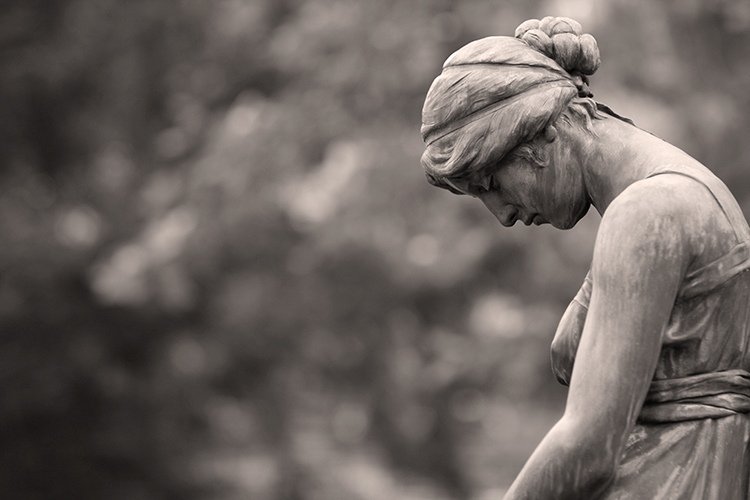
The way a Stoic grieves is vastly different from that of the average person, but there is a logic behind that is based on their dichotomy of control. This core idea of Stoic philosophy teaches that our world is composed of things we can control and others we cannot. We might ask ourselves how can we know the difference between such things, and how should that knowledge guide our actions?
For things you can control (your mind and actions), you should do your best to control them. However, for those things you cannot control (everything external to you) you should accept them as they are and not waste energy trying to control something that is out of your grasp. Even if an external event has harmful consequences, you should figure out what you can learn from that lesson and then let it go, without wasting energy regretting or trying to undo those events. That is exactly how a Stoic reacts to loss.
Is it really that simple?
One of the best tools Stoicism offers us is negative visualization – imagining the loss of everything you have. If you have practiced negative visualization, you would have pictured the pain and loneliness and fear that comes when you lose someone or something you love, but you would have prepared yourself to deal with that loss.
When we talk about grief, we’re talking about suffering caused by emotional pain. Grief is what you feel when you lose something you thought you could control. You thought you had control over that person or thing being in your life, and when that is proven false, you react accordingly.
It doesn’t matter what resulted in this loss – whether it was death or a change of mind or unexpected circumstances – the truth is that you have lost them. You don’t have them anymore. Ask yourself: do you have control over the things and people in your life? Do you have control to undo the events that have happened?
Unfortunately, the answer is no. You cannot control events or other people, but you can control how you experience that pain of not having them anymore.
Grief is not so bad
As tough as it seems, death is one thing that is out of our control. Our life is brief, so make the most of it. Don’t waste time spiralling into harmful emotions when you still have your life to live. Acknowledge your loss, grieve it, and then carry on. Stoics do have feelings; they cry and feel pain, just as they also feel happiness and joy. They just don’t allow those feelings to consume their lives and reason.
After your sadness passes, it is a perfect time for reflection. Ask yourself: what was the lesson I learned here? How can I react differently next time? What can I learn from that loss, that relationship, that person? These questions are productive and will help you along the path of self-understanding.
Don’t let guilt or regret take over. Realize there is a reason for everything and that it was something that was out of your control. You could only do your best with what you had at the time, and often our best isn’t enough to stop some events. There is no reason or point in focusing on the past, or the future for that matter. The only time that is important is our present.
A lesson learned
So, to answer the question of how a Stoic grieves, you can say he cries if he feels like it. He meditates over the circumstances of that loss, but he remains aware that they were outside his control. By doing this, he accepts his fate and doesn’t let it disturb his inner balance. He learns quickly that he needs to move on.
You might be thinking that this is easier said than done, and I couldn’t agree more, but training our mind in this practice leads to greater self-control and wisdom. Feel through your pain, and realise that loss is beyond your control.
We’re all different, so your grief may last longer and you may feel that pain deeper than others and that’s okay. There’s nothing wrong with that, but there must come a time to release that pain you feel. This is a very important step. When you’re finished grieving, don’t drag your pain around. Remind yourself that your own time is limited, and it should not be wasted in suffering. Stoics have the perfect response to death, and we should all keep that same perspective in mind.










